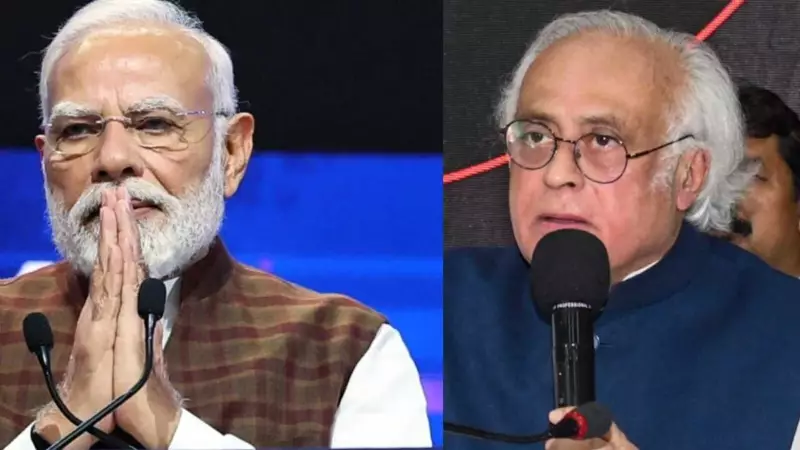
In a sharp political confrontation, the Congress party has launched a critique against Prime Minister Narendra Modi for his absence at the recent ASEAN-India Summit, while simultaneously participating in G20-related events. The opposition's remarks have ignited a fresh debate about India's diplomatic engagements and priorities on the global stage.
Political Sparring Over Diplomatic Attendance
Congress General Secretary Jairam Ramesh didn't mince words while commenting on PM Modi's decision to skip the ASEAN gathering. Using the popular phrase "Bachke Rehna Re Baba" from the Bollywood movie 'Gangs of Wasseypur,' Ramesh suggested the Prime Minister was avoiding certain international forums while selectively attending others.
The criticism comes at a crucial time when India is positioning itself as a key global player, particularly through its G20 presidency. The Congress party questioned the consistency in India's diplomatic approach, pointing to what they perceive as selective participation in international events.
ASEAN-India Relations: A Strategic Partnership
ASEAN (Association of Southeast Asian Nations) represents one of India's most significant regional partnerships. The relationship has grown substantially over the years, covering areas from trade and security to cultural exchanges. The summit in question was particularly important for discussing regional security concerns and economic cooperation.
India's engagement with ASEAN countries has been a cornerstone of its 'Act East Policy,' aimed at strengthening ties with Southeast Asian nations. The Prime Minister's absence from this significant gathering has raised eyebrows in political circles about the government's commitment to this strategic partnership.
Government's Diplomatic Calculus
While the opposition has been critical, government sources indicate that the decision was part of a calculated diplomatic strategy. The G20 events occurring around the same time required the Prime Minister's attention, given India's current presidency of the influential group.
Diplomatic experts suggest that managing multiple international commitments often requires tough choices, and governments must prioritize based on current geopolitical needs and national interests. However, the Congress party maintains that skipping the ASEAN summit sends the wrong message to India's important regional partners.
Broader Implications for Indian Foreign Policy
This incident highlights the ongoing political scrutiny of India's foreign policy decisions. As India seeks to expand its global influence, every diplomatic move undergoes intense political examination, both domestically and internationally.
The controversy also underscores how domestic political rivalries increasingly influence the perception and execution of foreign policy. With general elections approaching, such diplomatic decisions are likely to face even greater scrutiny from opposition parties.
As the debate continues, all eyes remain on how the government will navigate these diplomatic waters while addressing the concerns raised by political opponents about India's engagement with its important Southeast Asian neighbors.






